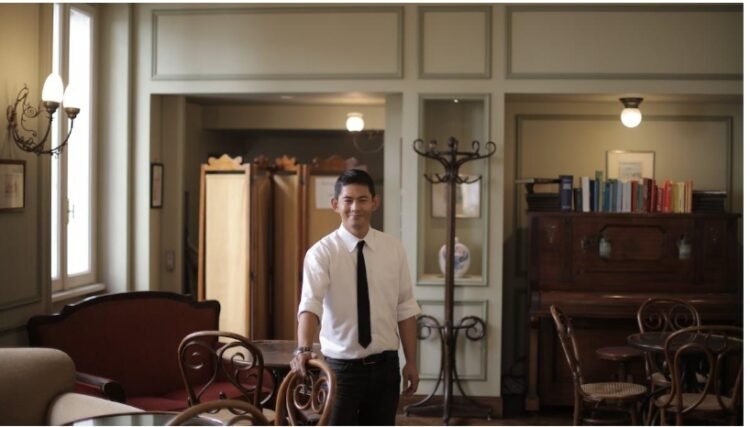Introduction
The hospitality industry is a realm where impeccable service, attention to detail, and guest satisfaction reign supreme. At the heart of this dynamic field are hotel managers, the individuals responsible for orchestrating the seamless operation of hotels and ensuring guests have memorable experiences. If you aspire to master the art of hospitality, pursuing a Hotel Management course is your gateway to the world of hoteliering. In this blog, we will delve into the world of hotel management, explore the significance of such courses, and shed light on the pivotal role of the housekeeping department in hotels.
The Art of Hotel Management
Understanding the Significance
Hotel management is an intricate dance of administration, customer service, and operations. A hotel manager oversees various aspects of a hotel, from guest reservations and staff management to financial planning and event coordination. They are the linchpin that holds the establishment together, ensuring that every guest’s stay is comfortable, pleasant, and unforgettable.
Why Pursue a Hotel Management Course
Your Path to Hospitality Mastery
Hotel Management courses are not just educational programs; they are transformative learning experiences that equip you with the skills and knowledge required to excel in the world of hospitality. Here’s why pursuing a Hotel Management course matters:
Comprehensive Education: These courses provide in-depth knowledge of hotel operations, covering topics such as front office management, food and beverage service, housekeeping, and event management.
Practical Experience: Many Hotel Management courses include internships or hands-on training, allowing students to gain real-world experience in hotel operations and guest service.
Professionalism and Etiquette: Hotel Management programs focus on grooming students in professionalism and etiquette, crucial in the hospitality industry where guest satisfaction is paramount.
Management and Leadership: Students learn management and leadership skills, preparing them for roles in supervising and directing hotel staff.
Networking Opportunities: Students have the chance to connect with professionals in the industry, leading to collaborations, job opportunities, and mentorship.
Ensuring a Comfortable Stay
The Role of Housekeeping Department in Hotels
The housekeeping department in hotels plays a pivotal role in ensuring that guests enjoy a comfortable and pleasant stay. Here are the key responsibilities and functions of the housekeeping department:
Room Preparation: Housekeepers prepare guest rooms by cleaning and sanitizing all areas, including bedrooms and bathrooms. They ensure that all amenities and supplies are in place.
Cleaning and Maintenance: Housekeepers are responsible for cleaning and maintaining common areas, hallways, and public spaces in the hotel. This includes vacuuming, dusting, and keeping these areas in top condition.
Linen and Laundry: The housekeeping department manages the inventory of bed linens, towels, and other guestroom supplies. They also handle laundry services, ensuring that linens are clean and fresh for guests.
Guest Requests: Housekeeping responds to guest requests promptly, ensuring that any additional amenities or services are provided.
Quality Control: The department performs quality checks to ensure that guest rooms meet the highest standards of cleanliness and hygiene.
The Significance of a Hotel Management Course
Crafting Hospitality Visionaries
Hotel Management courses play a crucial role in shaping the future of hoteliers and hospitality professionals. These programs offer several advantages:
Structured Learning: Hotel Management courses provide structured learning, covering the fundamentals of hotel operations and management.
Expert Guidance: Experienced instructors guide students, offering insights, feedback, and industry best practices. Their mentorship is invaluable in honing students’ skills and service excellence.
Hands-On Experience: Many courses incorporate practical assignments, internships, or real-world projects, allowing students to apply what they’ve learned in professional hotel management. This hands-on experience is invaluable for building a successful career in the field.
Networking Opportunities: Hotel Management courses introduce students to a network of fellow students, instructors, and industry professionals. Building a network of contacts in the hospitality industry can open up numerous opportunities and provide support throughout one’s career.
The Future of Hotel Management
Adapting to Changing Times
The hospitality industry continually evolves to meet changing guest preferences and technological advancements. Hotel managers will need to stay updated with the latest trends and technologies that enhance the guest experience.
Focus on Sustainability
Sustainability is becoming a central theme in hospitality. Hotel managers will play a significant role in implementing eco-friendly practices and reducing the environmental footprint of their establishments.
Career Opportunities
The demand for skilled hotel managers remains steady. Graduates with a Hotel Management course have a wide range of career opportunities, including managing hotels, resorts, restaurants, and other hospitality establishments.
Conclusion
Hotel management is a journey of service excellence, attention to detail, and ensuring guest satisfaction. Pursuing a Hotel Management course is not just an educational choice; it’s a commitment to mastering the art of hospitality. As you embark on your path in hotel management, remember that your professionalism, customer-centric approach, and leadership skills will be your keys to success. You’ll create memorable experiences for guests, ensuring their stay is comfortable and enjoyable. With the education and insights gained from a Hotel Management course, you’ll not only excel in the world of hospitality but also become a part of the ever-evolving realm of hoteliering, where every guest’s experience is a testament to your expertise and commitment.








